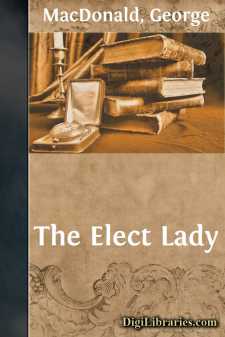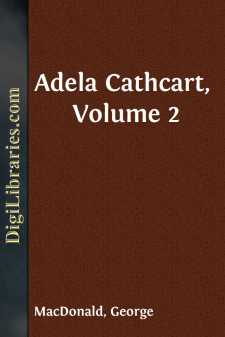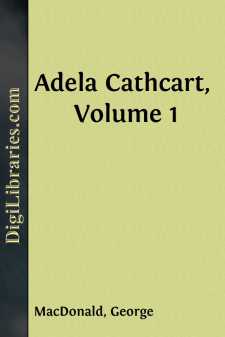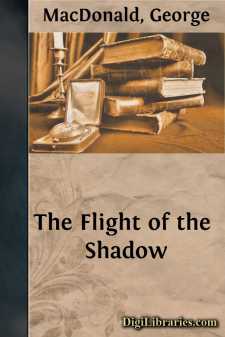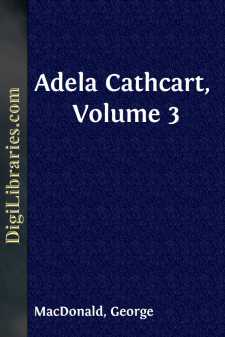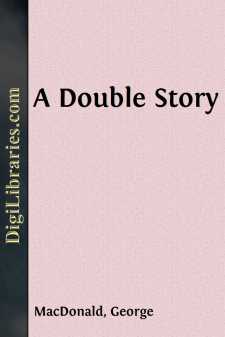Categories
- Antiques & Collectibles 13
- Architecture 36
- Art 48
- Bibles 22
- Biography & Autobiography 813
- Body, Mind & Spirit 141
- Business & Economics 28
- Children's Books 12
- Children's Fiction 9
- Computers 4
- Cooking 94
- Crafts & Hobbies 4
- Drama 346
- Education 46
- Family & Relationships 57
- Fiction 11826
- Games 19
- Gardening 17
- Health & Fitness 34
- History 1377
- House & Home 1
- Humor 147
- Juvenile Fiction 1873
- Juvenile Nonfiction 202
- Language Arts & Disciplines 88
- Law 16
- Literary Collections 686
- Literary Criticism 179
- Mathematics 13
- Medical 41
- Music 40
- Nature 179
- Non-Classifiable 1768
- Performing Arts 7
- Periodicals 1453
- Philosophy 64
- Photography 2
- Poetry 896
- Political Science 203
- Psychology 42
- Reference 154
- Religion 513
- Science 126
- Self-Help 83
- Social Science 81
- Sports & Recreation 34
- Study Aids 3
- Technology & Engineering 59
- Transportation 23
- Travel 463
- True Crime 29
The Elect Lady
by: George MacDonald
Description:
Excerpt
CHAPTER I.
LANDLORD'S DAUGHTER AND TENANT'S SON.
In a kitchen of moderate size, flagged with slate, humble in its appointments, yet looking scarcely that of a farmhouse—for there were utensils about it indicating necessities more artificial than usually grow upon a farm—with the corner of a white deal table between them, sat two young people evidently different in rank, and meeting upon no level of friendship. The young woman held in her hand a paper, which seemed the subject of their conversation. She was about four- or five-and-twenty, well grown and not ungraceful, with dark hair, dark hazel eyes, and rather large, handsome features, full of intelligence, but a little hard, and not a little regnant—as such features must be, except after prolonged influence of a heart potent in self-subjugation. As to her social expression, it was a mingling of the gentlewoman of education, and the farmer's daughter supreme over the household and its share in the labor of production.
As to the young man, it would have required a deeper-seeing eye than falls to the lot of most observers, not to take him for a weaker nature than the young woman; and the deference he showed her as the superior, would have enhanced the difficulty of a true judgment. He was tall and thin, but plainly in fine health; had a good forehead, and a clear hazel eye, not overlarge or prominent, but full of light; a firm mouth, with a curious smile; a sun-burned complexion; and a habit when perplexed of pinching his upper lip between his finger and thumb, which at the present moment he was unconsciously indulging. He was the son of a small farmer—in what part of Scotland is of little consequence—and his companion for the moment was the daughter of the laird.
"I have glanced over the poem," said the lady, "and it seems to me quite up to the average of what you see in print."
"Would that be reason for printing it, ma'am?" asked the man, with amused smile.
"It would be for the editor to determine," she answered, not perceiving the hinted objection.
"You will remember, ma'am, that I never suggested—indeed I never thought of such a thing!"
"I do not forget. It was your mother who drew my attention to the verses."
"I must speak to my mother!" he said, in a meditative way.
"You can not object to my seeing your work! She does not show it to everybody. It is most creditable to you, such an employment of your leisure."
"The poem was never meant for any eyes but my own—except my brother's."
"What was the good of writing it, if no one was to see it?"
"The writing of it, ma'am."
"For the exercise, you mean?"
"No; I hardly mean that."
"I am afraid then I do not understand you."
"Do you never write anything but what you publish?"
"Publish! I never publish! What made you think of such a thing?"
"That you know so much about it, ma'am."
"I know people connected with the papers, and thought it might encourage you to see something in print. The newspapers publish so many poems now!"
"I wish it hadn't been just that one my mother gave you!"
"Why?"
"For one thing, it is not finished—as you will see when you read it more carefully."
"I did see a line I thought hardly rhythmical, but—"
"Excuse me, ma'am; the want of rhythm there was intentional."
"I am sorry for that....


